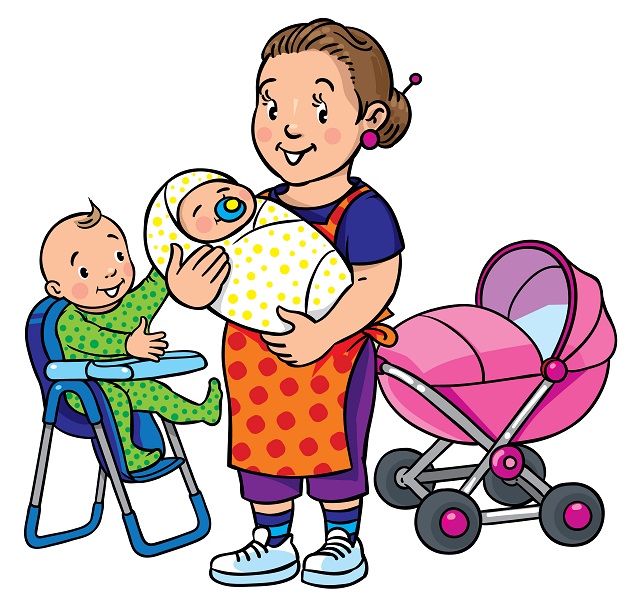Early Symptoms of Autism in Children
What is autism?
Autism is a developmental disability that disrupts one’s ability to connect with others and make sense of the world. Symptoms would start arising since early childhood, causing delays and disruptions in children’s growth and development. This would prevent them from being able to socializing effectively with other people. Thus, you may ask- What causes autism? There have been many differing opinions among scientists and doctors on what causes autism and what are the best treatments for it. One truth that is almost universally agreed upon is that parents should assist and intervene early on if possible. Here are some both obvious or subtle signs of autism that may be displayed at different stages of childhood.
Signs of autism in younger children
- Child does not react to mobile objects: Babies that are prone to autism tend to prefer looking at stationary objects than moving objects. For instance, they prefer looking at toys and furniture over observing moving animals or other humans.
- Child does not smile at people:
- Child does not display recognition of loud sounds or noises that usually disturbs other humans.
- Child hates physical contact, even friendly actions such as hugging,
- Does not react to speech or interactions. Barely talks
- Child does not attempt to get any reaction or attention from parents through actions.
- Child does not display signs of affection or tenderness towards family
- Child barely laughs or shows visible emotion
- Child is unable to crawl or stand without assistance.
The common trend here Is that children that autistic is unable to socialize with others properly. This is because they are unable to empathize effectively with other humans as they are effectively trapped in their own world. As a result, they are distant from other children and are totally oblivious of others’ attempts to reach out to them. Do not confuse autism with being introverted, as they are extreme differences and you do not want to stigmatize your child at a young age for fear of leaving mental scarring.
Signs of autism in older children
- Child speaks in unusual tones. For instance, they may display a tendency to speak in monotones.
- Child is unable to express emotions, desires, wishes or needs
- Child takes everything seriously or too literally. They are unable to understand jokes, sarcasm and humor et cetera. Child often ends up offending others without even realizing it.
- Child does not use actions or gestures to express emotions. Examples nodding to indicate agreement, smiling to indicate happiness et cetera
- Child does not understand certain forms of etiquette. For instance, they may not be able to gauge personal space very well, and may often offend or disturb others by being too physically close without realizing it
- Child does not seek solace in others. They do not feel comforted or are unable to be comforted by others due to a lack of empathy and emotional connection
- Child often engages in repetitive behavior. For instance, they may often be caught doing the same action such as running around aimlessly without pause, constantly rocking back and forth with no purpose et cetera. They may also be obsessed with certain objects such as fidget spinners, fans and bouncing balls. They will appear to stare aimlessly at these objects for significant amounts of time.
As seen from the abovementioned symptoms, children that are autistic are unable to detect or adapt to nonverbal cues or obvious body language that other children use to express their emotions. This prevents autistic children from being able to communicate or interact effectively with other healthy children as they are unable to understand each other. Also, autistic children are often rigid and excessively obsessive with certain objects or movements. These behaviors may result in judgmental reactions and disapproval from others, which may cause the child to be further ostracized or even bullied. Thus, it is imperative that parents detect these symptoms of autism in children early on so that they can seek treatment or intervention early on.
Course of action if worried
- First, an Autism Spectrum Disorder would be helpful in determining whether your child is afflicted with autism. An early diagnosis would help parents to understand their children’s disorder and thus hopefully be more sensitive and helpful. However, there is still the risk of inaccuracies and false positives, which parents and families must take into account. Placing a false diagnosis on a child who is merely eccentric or unusual in his behavior might have negative consequence. However, it is still more useful than a passive approach.
- Getting help. Consulting a developmental specialist or obtaining a referral for early intervention services allows for a more thorough and meticulous diagnosis process, where more tests and assessments are ran to best determine the possibility of the child being autistic. Even if your child is ultimately not diagnosed with autism, some of the treatments may help them in potentially correcting some eccentricities. Treatment is most effective when the child is in infancy and his brian is most malleable.
It takes a village to raise a child !
Join our WhatsApp Groups or Facebook Group to interact with parents about infant care/child care in Singapore..









